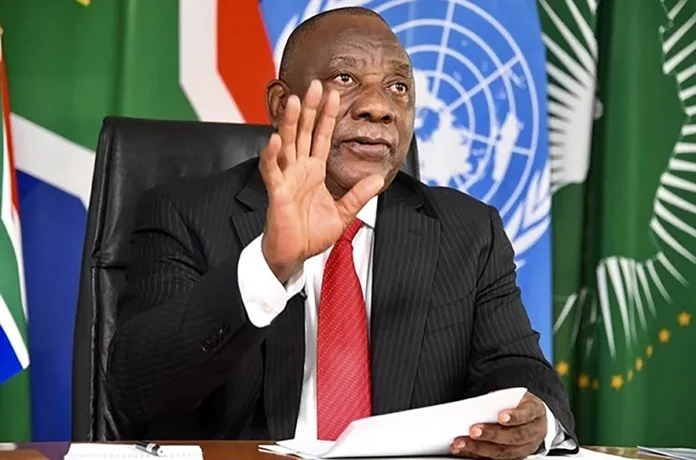President Cyril Ramaphosa says government remains committed to the transformation of the economy and empowerment.
He was addressing the nation through his weekly newsletter.
The President’s assertion follows a week when the National Treasury published a new set of Preferential Procurement Regulations.
“The new regulations are not ‘a victory for sound business practices’ as one interest group has claimed. What is unsound, unsustainable and, above all, immoral, is an economy that benefits the few at the expense of the many.
“Put plainly, we remain as committed as ever to broad-based black economic empowerment, meeting our localisation objectives and transforming an economy that, despite our best efforts, is still largely controlled by a minority. There should be no mistake or misunderstanding: broad-based black economic empowerment (BBBEE) is not under threat and is not being reconsidered,” he said on Monday.
Earlier this year, the Constitutional Court ruled that the then Finance Minister overreached when he prescribed the old regulations in 2017.
“[The Constitution] says that when public bodies contract for goods and services, they must do so in a manner that is fair, equitable, transparent, competitive, and cost-effective. It also says the state must implement a preferential procurement policy that advances people who have been disadvantaged by unfair discrimination. In South Africa, this refers to black people, women, and persons with disabilities.
“It is in this context that the new Preferential Procurement Regulations published by the National Treasury last week need to be understood. The government remains wholly committed to transformation and empowerment as envisioned in the Constitution,” he said.
President Ramaphosa said the new regulations comply with section 217 of the Constitution “in that they empower organs of state to develop and implement preferential procurement policies when contracting for goods and services” and will not hinder BBBEE.
“These regulations are an interim measure pending the enactment of the Public Procurement Bill, which the National Treasury will soon submit to Cabinet and Parliament. The Public Procurement Bill will maximise both value-for-money and preferential procurement objectives to enable the delivery of services and transformation.
“The new regulations have no effect on the Broad-Based Black Economic Empowerment Act, as all organs of state must fully comply with this Act when developing their procurement policies. This Act remains in force as one of the most transformative pieces of legislation to come out of democratic South Africa,” he said.
Mischaracterisation
President Ramaphosa said the purpose and effect of the new regulations have been “mischaracterised” with “commentary…[claiming] that this government is back-tracking on its commitment to broad-based black economic empowerment”.
“This claim is far from the truth. The government’s policy framework has not changed with the introduction of these regulations, nor has our commitment to service delivery and black economic empowerment.
“Empowerment criteria will still be applied in government contracting and organs of state must comply with the BBBEE Act when developing their procurement policies. What has changed is that organs of state will be able to set and apply specific ‘goals’ when evaluating a tender under a preferential procurement policy,” he said.
The President reflected that “we are certainly not as far as we had hoped to be with economic transformation” despite Constitutional provision and regulatory efforts.
“As I told the inaugural meeting of the newly formed Presidential Broad-Based Black Economic Empowerment Advisory Council in July, we need to develop a new vision for black economic empowerment that builds on successes, learns from shortcomings, and that responds to local and global economic realities.
“As we reflect on 20 years since the passage of the BBBEE Act, as we remedy the shortcomings that exist and chart a new course, we call on business, labour and civil society to join us on this journey.
“We have come a long way since the days when only whites were allowed to own businesses and provide goods and services to the state. Where black businesses did exist, they were confined to townships, rural areas and the so-called homelands. We can and must do more to advance economic transformation,” President Ramaphosa said.
– SAnews.gov.za
Follow @SundayWorldZA on Twitter and @sundayworldza on Instagram, or like our Facebook Page, Sunday World, by clicking here for the latest breaking news in South Africa. To Subscribe to Sunday World, click here.



